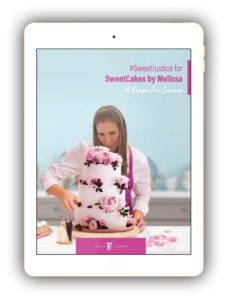First Liberty | Supreme Court | Judge Kavanaugh
Judge Kavanaugh’s Record: At a Glance
|
Scholastic Background |
|
|
Legal |
|
|
Nomination |
|
 |
BiographyJudge Brett Kavanaugh was born in Washington D.C. and is 53 years old at the time of his nomination. He has been married to his wife Ashley since 2004 and has two daughters. He received his bachelors of art degree at Yale College in 1987 and graduated from Yale Law School in 1990. He has a massive amount of important legal experience. He clerked for Judge Alex Kozinski on the Ninth Circuit court and for Walter Stapleton on the Third Circuit court. He was an attorney in the Office of the Solicitor General for two years and clerked for Justice Anthony Kennedy on the Supreme Court. In the late 1990s, he was in the private practice until he became Senior Associate Counsel to President George W. Bush in 2001. |
During this time, he taught at Harvard Law School about the Supreme Court as well as teaching at both Yale Law School and Georgetown University Law Center. He has been published in articles from the Harvard Law Review to the Wall Street Journal and the Washington Post.
He currently serves on the United States Court of Appeals for the D.C. Circuit and continues to teach at Harvard Law School. He was confirmed to the Circuit Court with a 57-36 vote and has served faithfully since 2006.
Summary of Judge Kavanaugh’s Key Religious Freedom Cases
Watch Judge Kavanaugh’s responses on religious liberty from his Supreme Court confirmation hearing!
Some of the most notable religious freedom opinions Judge Kavanaugh wrote or signed as a judge on the D.C. Circuit Court of Appeals include:
- HHS Abortion Pill Mandate – Judge Kavanaugh wrote and joined opinions supporting the rights of ministries and closely held family businesses to be free from the burden imposed by the HHS Abortion Pill Mandate In Priests for Life v. HHS, he voted to
invalidate the Obama Administration’s contraception mandate because it violated the rights of religious organizations. His argument that contraception mandates violate the Religious Freedom Restoration Actwas later vindicated by the Supreme Court in Zubik v. Burwell. - Religion in the Public Sector – Judge Kavanaugh dissented from his court’s ruling that the Washington, D.C. transit authority could ban religiously themed advertisements, including a Christmas ad; he called the policy “pure discrimination” and “odious.”
- Prayer in the Public Square – Judge Kavanaugh vigorously argued in Newdow v. Roberts (2010) for the Constitutionality of prayers at government ceremonies and the phrase “so help me God” in the Presidential Oath of Office.
Judge Kavanaugh on Key Issues
Judge Kavanaugh has proven himself on several key issues that we are facing in our modern times.
- Constitutional Separation of Powers – Kavanaugh has said, ” in our separation of powers system, to be an umpire as a judge means to follow the law and not to make or re-make the law…. A good judge sticks to the established text and canons of construction that help guide us in interpreting ambiguous text.”
- Second Amendment – Judge Kavanagh has argued that a clear originalist approach must be taken in interpreting the Second Amendment. In Heller v. District of Columbia (2011), he dissented from his court’s majority by writing that the District’s ban on the possession of semi-automatic rifles is unconstitutional.
- Freedom of Speech – Judge Kavanaugh defends the speech rights of all Americans, regardless of their political beliefs. In Emily’s List v. FCC, Judge Kavanaugh wrote an opinion that upheld the right of independent groups to raise unlimited contributions and make unlimited expenditures to express their views on causes and candidates. In Comcast v. FCC (2013), Judge Kavanaugh argued that a law prohibiting video programming distributors from favoring their affiliated video programming networks over other networks violated the First Amendment.
More










